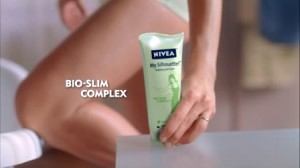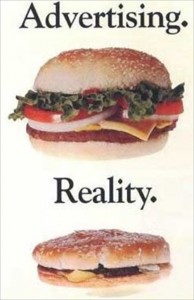My family has always laughed at the concept of Nutela being a “nutricious” food option as it is advertised to be. I was actually quite happy when I read Ben Morgan’s blog that they had been sued for misleading. I don’t think it is ethical for a company to be taking advantage of people who are uninformed. Using suttle deception in advertisements is actually quite common in this day and age, and something people should be more aware of. A food identity blog informed me that Nestle had been sued for stating that it’s water was naturallly sourced when it was municipally sourced. Orange Julius claims to have All Beef hot dogs. In reality the brand of hot dogs they use is called All Beef, however the hot dogs themselves are not actually all beef. Activia was sued for claiming their yogurt had nutritional benefits when it didn’t. Nokia falsely advertised pictures for a phone that were not actually taken by the phone. I could go on for days with other examples. Clearly false advertising is unethical and it is illegal, so why is it still happening so often? The problem with misleading advertisements, as this financial post article expands on, is that false advertising is hard to prove, and hard to take to court. Furthermore it has been successful time and time again. Given these factors false advertising is unlikely to stop anytime soon so the best we can do is to be informed ourselves!
Photo retrieved from: http://4.bp.blogspot.com/V7H11jbbdQk/TbZ07EI3FVI/AAAAAAAAJGU/bvNHkw5JLQ8/s1600/false_advertising-img-685.jpg
http://www.ftc.gov/opa/2011/06/images/nivea_ad.JPG


